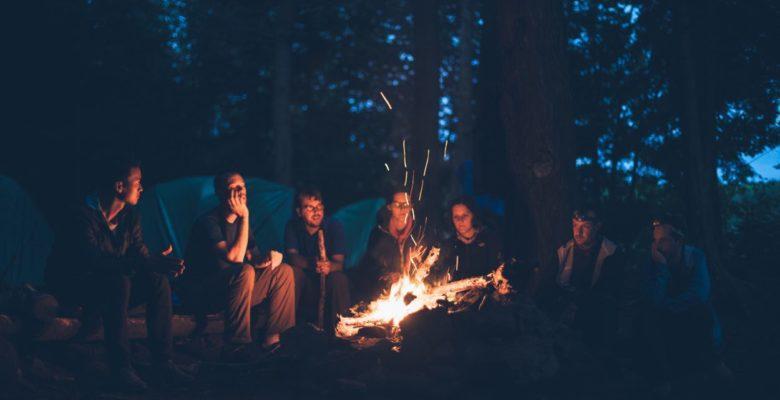“When adults share stories of self-reflection, seeking forgiveness, and naming how we could have done better show that brokenness is part of being human and that grace is real.”
These tools were designed for use in a residential camp setting. They can be easily adapted for use in youth group and retreat settings.
Trauma:
Sudden or sustained change experience that leaves us in a new reality.
Adolescence:
A period of physical, emotional, and social change between childhood and adulthood.
These two definitions are very similar. Youth are not just being dramatic – adolescence is traumatic. In addition, many youth have or will experience trauma, which means they are now dealing with two at the same time. Here are 5 things we can do to support them through this volatile time.
Balance Heavy Emotional Experience With Physical Movement
We know that emotions are powerful and can trigger traumatic memories. Other camp moments speak directly to stresses and problems campers face at home, bring them face to face with strong feelings they expected to leave at home. In response to fears or powerful emotions, our instincts often kick in and lead to three common responses: fight, flight, and freeze. Flight and fight are easily understood. We face the problem with aggression or run away from the issue. The third option comes from those who feel helpless. Freeze is something we are familiar with in deer or opossum, but also visible in people who quit trying to make things better or emotionally shut down. Physical movement is a great way to take trauma energy and redirect it. This can be an active game, or simply taking a walk. Sometimes the walk is more important than any conversation you might have.
Affirm Responses That Might Be Considered Negative
Fight, flight and freeze are natural responses. Powerful emotions are a natural response. Asking questions is a natural response. Even desires for revenge are a natural human response. If we can name the natural and normal nature of these experience, we keep young people from creating a “no one would understand” narrative in their mind. If we can name these as normal, youth can be assured that they are not alone and that others have chosen not to act negatively in response. They also have that choice – that power.
Flip the Questions
In issues of blame or unfairness, help campers look at the bigger picture. When they want to know why something bad happened to them, ask the question, “Why not?” Nothing in scripture promises us a life of protection. Quite the opposite. God’s people have always been promised a spirit of comfort in the midst of struggle rather than protection from it. When campers ask why someone hurt them, or “Why me?”, flip the question and ask, “Why them?” Explore what led to that person’s behavior. That starts with self-reflection, seeing where we might be personally accountable, then looking at the offending party’s life and what might have hurt them. What is going on in that person that leads them to act out? What are they seeking through their behavior?
Celebrate Rituals That Give Meaning
How we remember things matters. For a memory to be stored in a healthy way, it requires logic and emotion. Through rituals of remembrance, we allow powerful emotions to be claimed and we attach healthy, logical narratives that include the realities of an event, even if it is tragic. Memorials around gun violence should have statistics and personal story. A coming of age ritual should include who the youth has been and affirm them for who they have become. Memorials that reenact violence or celebrate it tend to retraumatize and should be avoided, this is the difference can be seen in reenacting a Civil War battle and looking into the reflective wall of the Vietnam Memorial.
Testimony of Responsibility
Trust is important with children and youth, and some adults are afraid of looking broken or irresponsible in front of them. Young people want to trust adults, but for a variety of reasons, it just not that easy. Sharing personal stories that include accountability and what we learned are a powerful. Self-reflection, seeking forgiveness, and naming how we could have done better set a good example for young people, but do even more. These actions show that a responsible adult is not without fault, but aware of their own limits. These actions show that brokenness is part of being human and that grace is real.

